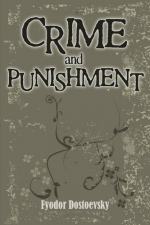|
This section contains 695 words (approx. 3 pages at 300 words per page) |

|
Rascolnikov's Guilt
Summary: An argument in favor of the regret and overwhelming guilt that plagues the character Rascolnikov in the novel Crime and Punishment following his double-murder. Rascolnikov at first rationalized his act of murder against the old woman through reason and logic, but it is evident that he is timid and uncertain with his actions and ill prepared for the doubt and insecurity that ensued after the murders.
During a time that sought political unity, radical groups were constantly rising and falling in the late 19th century Russia. These radical groups tried to progress towards drastic political changes. Groups such as these seem to encapsulate the mindset of "Crime and Punishment's" Rascolnikov, who used reason and logic to rationalize his act of murder against the old woman. He figured that since the old woman was a plague to society, Rascolnikov should kill her to eliminate her burdensome decisions. Rascolnikov conceals a super-human ego that leads to his regret.
Rascolnikov initially displays a determined, steadfast conscience as he plots to kill the old woman. On the night before the murder he "slept unusually long and without dreaming" (66). This characterization seems to imply that his mind was so clear and defined the night before the murder that he didn't need to consider any other option. He planned on...
|
This section contains 695 words (approx. 3 pages at 300 words per page) |

|


